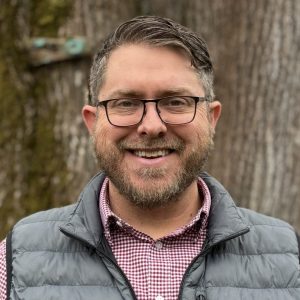A few days ago, US Surgeon General Dr. Vivek Murthy released a report addressing the “epidemic of loneliness and isolation” prevalent in America today. He also laid out a framework for a “National Strategy to Advance Social Connection.” The report concludes social connection is as essential for human flourishing as food, water, or shelter. It rightly claims humans have always relied on each other for survival, including modern people who still need connection with others.
In response to this national crisis, Dr. Murthy proposed a new strategy built around six pillars or strategies. The first pillar includes promoting volunteer programs and religious organizations. It is interesting religious organizations—churches, synagogues, temples, and other gatherings—would be included in a government report on solving a national epidemic.
If resolving loneliness is a pressing social problem today, the church is poised to be a key part of the solution. The simplest definition of the church—from my seminary class notes forty years ago—is “a fellowship on mission.” We often emphasize the latter part of that definition—being on mission. But the first part of the definition is equally important. The church is a fellowship—a fellowship which emerges through mission.
The biblical concept of fellowship is far more than social gatherings, shared meals, or some version of “southern hospitality.” It can include all of these, but goes much deeper. Real fellowship is what people today call community. Its sharing life with people—bearing each other’s burdens, supporting each other when life is painful, caring for practical needs, and defending others in moments of weakness or vulnerability. Sounds like church to me!
Being in fellowship with a church begins with showing up. Be with your church family regularly. The next step is serving, not being served. Don’t wait for someone to reach out to you, just step forward and get involved. As you serve, you will develop relationships with people who share your interests, passion, positions, schedule, and purpose. This is one of the mistakes people make today who are trying to create community. They think community comes from sitting, talking, and drinking coffee. Nope. Community comes from being on mission together—doing something that knits our hearts to others who see and share life the way we do.
Have you ever wondered why men who were in the military together thirty years ago feel closer to their distant comrades than their current neighbors? The answer is they served together, doing something that mattered and bonded through the experience. We have a similar experience when we sacrifice ourselves together for eternal purposes through the church.
If you want community—real fellowship—get on mission serving with some fellow believers. As you do, loneliness will evaporate—perhaps slowly at first, but as surely as the morning dew disappears so will your sense of isolation. Healthy churches are one solution to the national pandemic of loneliness. We offer people eternal life in Jesus, but also meaningful life today serving Him in community with fellow believers.
Read More

Comfort Twice Over
When we provide comfort to fellow believers, we are the means by which God has chosen to provide his comfort.

Inheritance & Glory: Our Vocation
For believers, while heaven may seem long away, our eternal inheritance is already available to us in the here and now.
Listen
Brian Borgman
On this episode of The Jonathan Edwards Center Podcast, Dr. Chris Woznicki interviews Dr. Brian Borgman regarding his book, Jonathan Edwards on Genesis. They discuss Edwards as an exegete, as an interpreter of scripture, specifically looking at Genes

The Dents
Tyler sits down with longtime missionaries and retired Gateway faculty, Don and Anne Dent. The Dents served with the IMB for over 30 years and most recently at Gateway Seminary. In this episode, they reflect on their past experiences from working in the mission field

Watch

Jonathan Edwards and the Asbury Revival
Chris Chun and Chris Woznicki discuss the signs of true revival, signs of the work of the Holy Spirit, and why it is important to critically assess the characteristics of revival in a spirit of charity.

Jonathan Edwards and the Baptists | Douglas Sweeney, Nathan Finn and Chris Chun
Dr. Douglas Sweeney and Dr. Nathan Finn joined Dr. Chris Chun for a panel discussion on Jonathan Edwards, recorded live at the SBC Annual Meeting in Anaheim.




